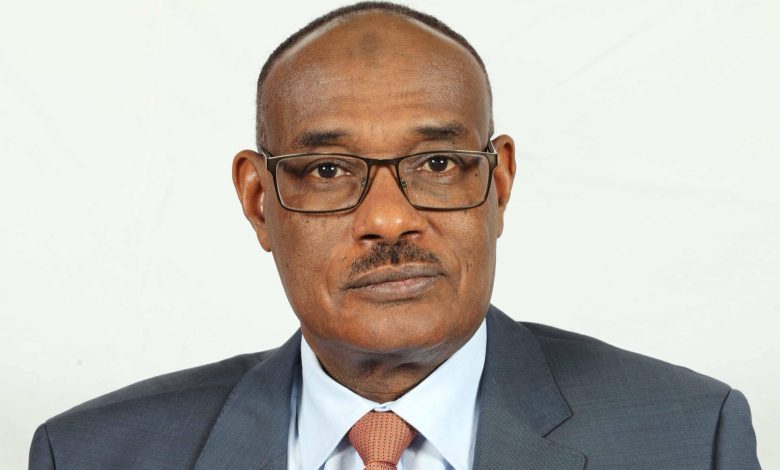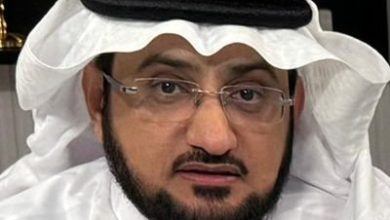Opinion
The Return of Trump: What Does It Mean for Sudan?

Dr. Dardiri Mohamed Ahmed, Former Foreign Minister
The election of U.S. President Donald Trump in 2016 and the policies he pursued in his first term led to an accelerated shift toward a multipolar international system. Thus, Trump’s tenure marked the end of the so-called “Unipolar Moment,” which began with the fall of the Berlin Wall in 1989, and the emergence of a still-developing multipolar order. Under the banner of “America First,” the U.S. stepped back from its traditional global leadership, allowing other nations to play more prominent roles on the international stage. The trade war with China, for instance, bolstered China’s global standing and extended its economic strategy through the Belt and Road Initiative. Meanwhile, Trump’s relatively lenient approach toward Russia provided it with the latitude to expand its influence in Europe and the Middle East. Additionally, Trump’s criticism of NATO’s dependency on the U.S. pushed European nations to adopt a policy of “strategic independence” and set minimum defense spending goals. The decreased American intervention worldwide also allowed regional powers, such as India, Turkey, Brazil, and Israel, to pursue influence within their regions. Hence, a significant anticipated effect of Trump’s return would be the reinforcement of a multipolar international order. This concerns the global arena.
On the African level, which provides insight into the potential implications of Trump’s return for Sudan, Trump’s first term saw a notable disengagement from traditional U.S. intervention in Africa across key areas. The U.S. reduced its involvement in nation-building, conflict resolution, peacekeeping, and humanitarian aid. If Trump continues this approach in his new administration, it is likely to further reduce American costs in Africa, particularly in peacekeeping operations, and minimize the U.S. military presence in Africa—as he did previously by cutting U.S. forces in the Sahel region—and scale back developmental and humanitarian aid programs. Moreover, as in his prior term, Trump is expected to direct aid based on clear U.S. strategic interests rather than as part of broader nation-building efforts in targeted African states.
The previous Trump administration was also known for its reluctance to resolve conflicts or support peace efforts. It showed little interest in diplomatic efforts to resolve crises in regions such as South Sudan and the Central African Republic, where Trump’s administration did not oppose Sudan’s mediation under former President Bashir. The Democratic Republic of Congo was similarly left open to other nations, such as France, and regional organizations like the African Union, to work on resolving its disputes.
Additionally, during Trump’s first term, Africa was a focal point in the U.S.-China competition. Trump focused on sidelining China in Africa rather than building substantial developmental partnerships or alliances with African nations. John Bolton, Trump’s National Security Advisor, was the architect of the “New Africa Strategy” introduced in 2018. Based on this policy, the Trump administration aimed to curtail Chinese influence on the continent, especially in infrastructure projects and natural resources, without offering alternatives for African nations. This approach led to reduced support from U.S. agencies for development projects in Africa, prompting African countries to strengthen ties with China, which offers financing on flexible terms without attaching political conditions.
Thus, the expected impact of Trump’s return on Africa would be a reduction in direct intervention, linking U.S. support to strategic interests without significant funding commitments or direct involvement in conflict resolution. Trump’s African priorities would likely be more economic and commercial than political or humanitarian, focusing on curbing Chinese, and possibly Russian, influence through trade agreements and investments by major American corporations.
While Bolton is unlikely to return in Trump’s new administration, given the strained end of his previous tenure and public criticism of Trump, his Africa policy is expected to persist as it aligns with Trump’s general approach. Mark Green, USAID director during Trump’s first term, played a significant role in implementing this policy by reducing fully funded projects. Green’s return is possible, despite not being a prominent figure expected to rejoin the administration, as he supported a more gradual approach to executing Bolton’s strategy while maintaining some development aid continuity.
One of the prominent U.S. diplomats who managed African affairs during Trump’s term was Tibor Nagy, Assistant Secretary of State for African Affairs. Known for advocating economic partnerships with African nations, Nagy supported excluding China from Africa but emphasized “equitable partnerships” with Africans instead of direct confrontation with China. Nagy was one of the few U.S. diplomats closely following Sudan’s situation. His tenure coincided with mine in the Foreign Ministry, and we were in frequent contact, working to advance Sudanese issues. After the April 2019 change, Nagy became the first Western diplomat to visit Sudan. He is respected among Republicans and could return in any future Republican administration that adopts a flexible approach toward Africa. However, Trump’s tendency to reduce engagement may not align with Nagy’s calls for collaboration and alliance-building.
Another notable diplomat from Trump’s first administration involved in Sudanese issues was Cyril Sartor, Senior Advisor to the National Security Council for African Affairs. Sartor, with extensive African expertise, served for years in the CIA specializing in African affairs. While supportive of Trump’s China and Russia containment strategy in Africa, Sartor believed in strengthening economic and security relations with African nations in line with U.S. national security priorities. Sartor, a Republican diplomat familiar with Sudanese affairs, first met me in Washington during my initial U.S. visit as Foreign Minister in September 2018. Despite an intense initial meeting, we later established good relations, leading to his visit to Khartoum in January 2019, where fruitful negotiations were held on lifting U.S. sanctions against Sudan.
Another key diplomat for Sudan in Trump’s prior administration was Deputy Secretary of State John Sullivan, responsible for African affairs and lifting sanctions against Sudan. Sullivan’s term as Deputy Secretary (2017–2019) saw active diplomatic engagement with Sudan, playing a pivotal role in the partial lifting of sanctions in 2017 as part of U.S. efforts to support Sudan’s smooth political transition. However, his potential return to Trump’s administration is unlikely due to his recent tenure as U.S. Ambassador to Russia and diverging views on Russia from Trump.
Some wonder why Gulf leaders, especially in the UAE, favor Trump’s return and if this would mean support for UAE’s position on Sudan. Gulf nations welcome Trump due to his previous administration’s stance on Iran, close security cooperation, major arms deals, and the fostering of Gulf investments in the U.S., along with a lenient stance on human rights criticisms. Trump’s first term also supported Gulf-Israel normalization, expecting the Abraham Accords to reshape the regional landscape by sidelining movements like Hamas and isolating Sunni and Shia Islamist groups. However, whether the new Trump administration would support UAE’s stance on Sudan is unclear.
Republican administrations, especially Trump’s, are generally disinterested in democracy-building projects, meaning a new Trump administration would likely disregard reviving the framework agreement or supporting any particular civilian groups in Sudan. Additionally, the criticisms in major U.S. media like the New York Times of the UAE’s Sudan policy weaken the chances of Trump endorsing it. Following recent regional developments, the Abraham Accords, which once drew Sudan into Trump’s priority files, are unlikely to regain the same prominence, as current international priorities have shifted toward the two-state solution rather than sidelining the Palestinian cause through normalization with Israel.
Before concluding, it is important to note that the author has closely followed the ongoing U.S. debate regarding the “Project 2025” document and whether it represents the blueprint for Trump’s upcoming domestic policies—a claim that Trump denies. Others, including The Wall Street Journal, suggest that Trump’s future policies will likely be shaped by the America First Agenda. Regardless of which perspective holds, the author finds little in either document to suggest that Trump’s new administration would deviate from the foreign policy approach of his first term.
In conclusion, a new Trump administration represents a lesser evil in American politics, and perhaps an optimistic observer might view it as the best gift for Sudan’s leadership and military. The changes Trump brings to the international scene provide Sudan with a rare opportunity to forge beneficial foreign relations to aid in winning the war quickly and building partnerships for reconstruction. It also marks a significant blow to groups like “Taqaddam” and their rapid support.



